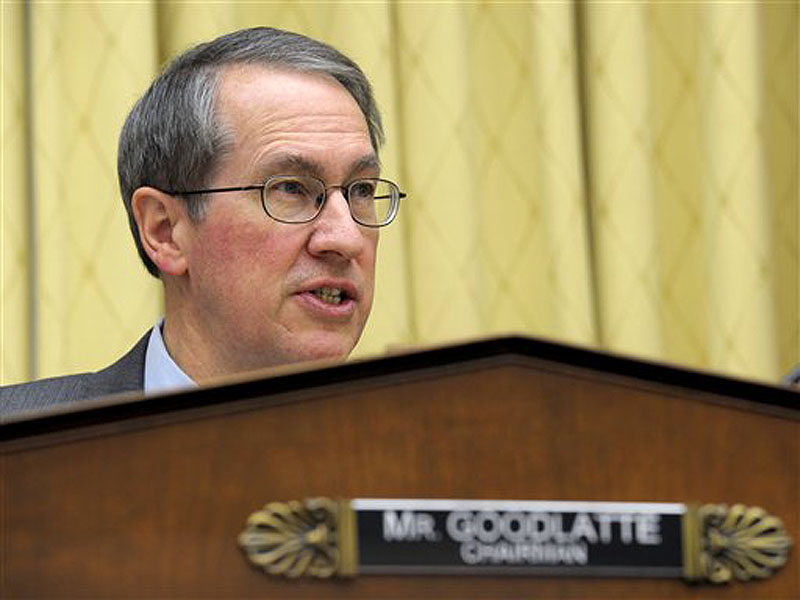WASHINGTON – House Republicans announced the first in a series of immigration-related bills that would attempt to reshape the system one piece at a time, in contrast with the comprehensive approach the Senate is pursuing.
The chairman of the House Judiciary Committee, Rep. Robert Goodlatte of Virginia, was careful Thursday to say the two bills he would propose this week — and several more after that — were just starting points for debate. The effort does not preclude the broader changes being drafted by bipartisan groups in both chambers, he said.
“We think we can help move the process forward by beginning to examine the legislative details,” said Goodlatte, an immigration lawyer. “No one should take the limited bills we’re introducing this week to be in any way an indication of our overall interest in solving all of the various aspects of immigration reform that are before the House and Senate.”
Nonetheless, some immigration-reform advocates warned that the move in the House, where bipartisan negotiations on comprehensive legislation have stalled, could complicate efforts to pass an immigration bill this year. House members who oppose a comprehensive approach but who want to be able to say they voted for something could fall back on these more limited bills, they said.
The House bills would provide an easier choice for conservative Republicans than the complex bill from the Senate, which involves a series of political tradeoffs including enhanced border security, new guest worker programs and the eventual chance for citizenship for most of the 11 million people in the U.S. who entered the country illegally or overstayed their visas.
At the same time, however, the House bills could provide an important educational exercise for many newer Republican lawmakers as they learn the complexities of the immigration debate. Many Republicans represent congressional districts that have very small Latino or immigrant populations, making them unfamiliar with the issue. Republican leaders, however, believe that passing immigration reform legislation is vital to attracting Latino voters.
Goodlatte and others have been conducting study sessions attended by 100 Republican lawmakers to bring them up to speed on immigration issues.
“I represent a district with less than 2 percent Latino voters, so this is not a political exercise for me,” said Rep. Trey Gowdy (R-S.C.), who has helped lead the sessions. “I would like a remedy that sustains us for the remainder of my lifetime.”
Send questions/comments to the editors.



Comments are no longer available on this story